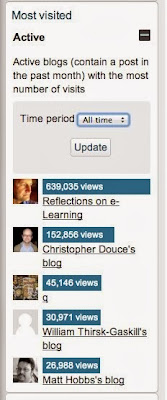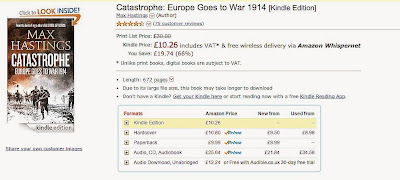Nothing beats this platform. I felt this from the start in 2010. I guess it migrated from a Notice Board List Serve thing I even remember from 2001.
It works because it is a hybrid, part blog, part noticeboard. It is simple. You write into a template and have parameters. Parameters are old school, like writing copy for print editorial. Parameters help too. I can't prattle on for too long (or cut and paste an essay). I could add it as an attachment though, and media file sizes have to be compressed too. Wise in 2020 when an image from a fancy phone can be so huge. Just learn to make them smaller and lower resolution.
I can chose to keep this entirely private to me, shared to the OU or shared to the world.
I wish other institutions took blogging by students seriously and did this too. It worked when I was studying here as fellow students knew exactly where to find me and we could talk/collaborate between each other - fellow OU students only invited. So comments ran well.
All I was meant to note here, now that I have 'education' on my mind courtesy of the PGCE is that I stumbled upon a letter from my later mother from 2005 in which once again she tried to sell me the virtues of taking a PGCE, even if I didn't have the degree in Art, which is all I could then see me teaching, not Geography (my first degree), perhaps History (gained in 2016) or Education (my MA here gained in 2013) or even sport given my loft Swim England Coaching qualifications.
Of what value were our school 'reports' from Prep School in the 1970s? Everything is about place in term, place in exams, and the disparaging remarks such as 'Rather disappointing! He is VERY careless over elementary and his oral work is weak'. As I was 10.2 I rather blame the dreadful teaching practices of Mr Denis Sullivan who caned boys who couldn't recall accurately vocab lists he drilled into us. Mathematics > excellent. As it remained throughout school - have I missed something all this time? Geography 'faultless'. Art 'Excellent'. It all makes me cringe. And I learn 50 years on that most of the teachers had no qualifications to teach. What did our parents pay for?



